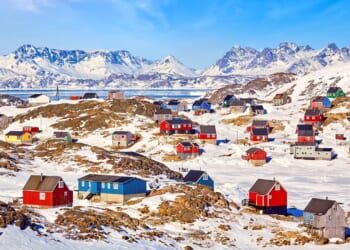Watt’s Happening aims to provide breaking news, sharp analysis, and thoughtful commentary from the cutting edge of the energy sector as this dynamic area of the world continues to expand and grow before our eyes.
Weekly Highlights:
Slovenia and France Deepen Their Nuclear Energy Ties…
Slovenia’s Prime Minister Robert Golob and French President Emmanuel Macron have just signed an agreement to deepen their ties in the field of nuclear energy. The agreement has also placed the French nuclear company EDF into a competition with Westinghouse — an American nuclear energy firm — in the race to build a new unit at the Krško Nuclear Power Plant. While the goal is to make Slovenian energy more green, the ultimate goal is to have the nuclear power plant serve not just Slovenia but all of Southeastern Europe.
As Do Türkiye and Kuwait
Meanwhile, Türkiye and Kuwait just signed a memorandum of understanding regarding energy cooperation, deepening their own ties in the fields of electricity, energy efficiency, and renewable energy. This memorandum was part of a package of agreements between the two countries, which includes a maritime transport agreement and a memorandum of understanding on seafarers’ certificates, and was signed as part of Turkish Recep Tayyip Erdoğan’s tour in the Persian Gulf region, which also includes visits in Qatar and Oman.
A Solution to the Data Power Crunch?
There may be a solution to powering the data centers that are fueling the AI revolution: virtual power plants. While the name makes them sound like they are either from science fiction or only exist online, they are very real. In short, virtual power plants — such as the one managed by Voltus — aim to regulate the amount of electricity homes and businesses contribute to the grid via solar energy and have data centers to pay other utility customers to reduce their use when electricity demand peaks. Not surprisingly, this is far cheaper than building new infrastructure.
Greener Cargo Shipping Delayed
A few articles ago, I wrote about how the maritime industry needs to decarbonize as well. While there have been some positive changes in this field — such as China building an ammonia-powered ship over the summer and a Danish company launching a methanol-powered ship — much more needs to be done. Up until recently it was hoped that a decision made by the United Nations’ International Maritime Organization would supercharge this transformation. As a result of lobbying from the Trump administration, however, the IMO has not made any such decision yet. A new vote is scheduled for October 2026.
A Thermal Battery at an Oil Field
A California oil field has started to use a new tool — the heat battery — and involves thermal energy storage systems. These are devices that are produced by companies such as Rondo Energy and turn electricity into heat. Basically, this device works by having solar power heat up a large amount of refractory bricks, which generates steam power. In the case of the oil field industry, this steam is used to replace the fossil fuel boilers that once powered the same process. Critics have pointed out the “Faustian bargain” at work here. While the extraction of the oil is greener, the final product itself is not.
About the Author: Toni Mikec
Toni Mikec is the managing editor for Energy World, a publication of the Center for the National Interest. Before that, he worked as a political consultant for Your Voter Guide in Sacramento and as a senior editor at Eagle Financial Publications in Washington DC. He holds a B.A. in International Relations (summa cum laude) from the University of California, Davis and a M.A. in International Relations and International Economics from the Johns Hopkins School of Advanced International Studies.
Image: Shutterstock/Ben 75

















